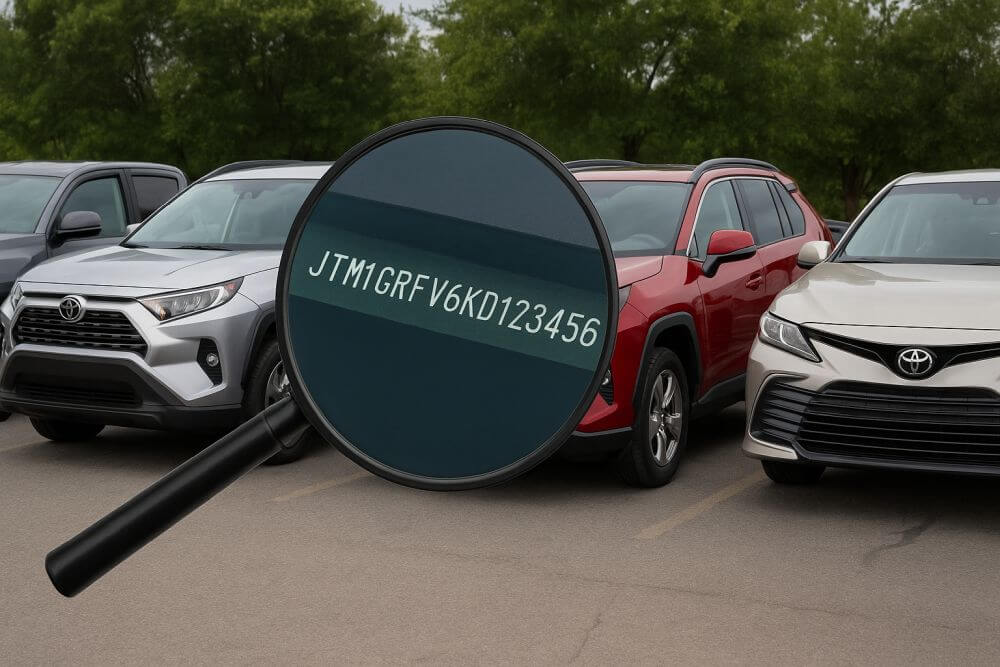When it comes to understanding car value and trade-in offers, many vehicle owners and buyers are often misled by common myths. These misconceptions can lead to poor decisions during car purchases or sales, especially in the used car market. It’s essential for buyers and sellers to debunk these myths to make more informed choices. A critical tool in this process is using a Free VIN check and VIN search to gather accurate information about a vehicle’s history and specifications.

Understanding the true value of a car is crucial, particularly when considering trade-in offers. Many factors influence car depreciation, and understanding car depreciation value can help clarify what a fair offer might be. By educating yourself on these factors, you can approach the buying or selling process with confidence and knowledge.
Common Myths About Car Value and Trade-In Offers
Myth 1: The Trade-In Value is Always Lower Than Selling Privately
One of the most prevalent myths is that trade-in values are always lower than what you might achieve selling a car privately. While dealerships do need to make a profit, trade-ins can save you time and effort. Additionally, dealers might offer competitive prices, especially if you’re purchasing another vehicle from them. Consider the convenience and potential tax benefits when evaluating trade-in offers versus private sales.
Myth 2: All Cars Depreciate at the Same Rate
Another common misconception is that all vehicles depreciate uniformly. In reality, depreciation varies significantly between different makes, models, and even individual vehicles. Factors such as brand reputation, model popularity, and vehicle history can all influence depreciation rates. Utilizing a VIN decoder can offer insights into specific vehicles, helping you understand car depreciation value more accurately.
Myth 3: A Clean Car History Guarantees a High Trade-In Value
While a clean car history is beneficial, it’s not the sole determinant of a vehicle’s trade-in value. The overall condition, mileage, and market demand at the time of trade-in also play critical roles. A comprehensive vehicle history report can provide a clearer picture, but it’s just one piece of the puzzle in determining value.
How a VIN Decoder Helps in Understanding Car Value
A VIN (Vehicle Identification Number) decoder is an invaluable tool for both buyers and sellers looking to verify vehicle specs and history. By entering a VIN into a decoder, you can access detailed information about the car’s manufacturer, engine specs, model year, and much more. This information can help in assessing whether a trade-in offer is fair or if the car is priced correctly in a private sale.
Additionally, a VIN check can reveal any accident history, title issues, or other red flags that might affect a vehicle’s value. By using resources like VinCheckPro’s free VIN decoder, you can arm yourself with the knowledge needed to negotiate better deals and avoid potential pitfalls.
Call to Action
Before making any decisions on buying or selling a used vehicle, take advantage of the tools available to you. Visit VinCheckPro’s free VIN decoder to gather detailed insights into any vehicle’s history and specifications. This knowledge will empower you to make informed decisions about car value and trade-in offers.
Frequently Asked Questions (FAQ)
How does a VIN decoder help in evaluating car value?
A VIN decoder provides detailed information about a vehicle’s specifications, history, and any potential issues, helping you assess its true market value and make informed trade-in or purchase decisions.
Is it better to trade-in a car or sell it privately?
The decision depends on personal preferences and circumstances. Trading in can be more convenient and sometimes offer tax benefits, while selling privately might yield a higher price but requires more effort.
Do all cars lose value at the same rate?
No, depreciation rates vary based on factors like make, model, market demand, and vehicle history. Using a VIN decoder can help you understand the specific depreciation of a car.
Can a vehicle’s history affect its trade-in value?
Yes, a vehicle’s history, including accident reports and title issues, can significantly impact its trade-in value. Obtaining a detailed history report is crucial for accurate evaluation.
What are some red flags to look for in a vehicle history report?
Watch out for past accidents, salvage titles, odometer discrepancies, and frequent ownership changes, as these can all negatively impact a car’s value and reliability.

